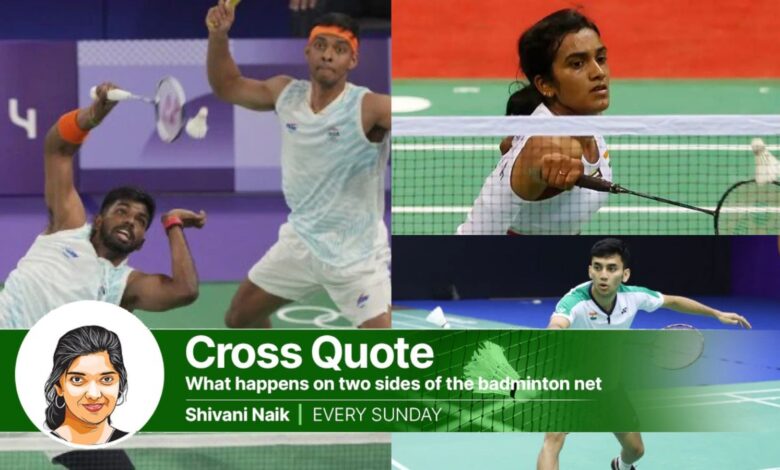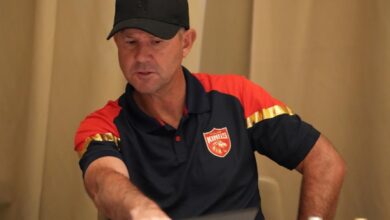Badminton ejected out of Commonwealth Games is not a conspiracy against the sport or India | Badminton News

Badminton gave India some pathbreaking moments at the Commonwealth Games in the last 18 years. The CWG medals weren’t particularly the toughest to win, but as milestones and boxes to tick in a shuttler’s career go, every edition since 2006 has proved pivotal. So the general outrage emanating from Indian shores at its omission from the 2026 Glasgow Commonwealth Games is understandable. But, does the Glaswegian indifference hint at derision towards India or an evil conspiracy? Highly unlikely.
Hockey had a better competition cohort amongst CWG nations, squash really could have done with a good dress rehearsal at a Games ahead of Olympics and Archery is the most compelling watch amongst the sports left out. Scotland genuinely digs its Rug which got dropped and even at the height of Andy Murray’s ascent, Glasgow 2014 didn’t think twice about dumping tennis.
It’s perhaps time to bluntly acknowledge – the UK doesn’t have money. And no sport was personally targeted, the Commonwealth just can’t cough up enough dough to put together the infrastructure beyond their preferences or even host team sports. But this is no specific judgment on badminton’s place in the sporting universe.
Guests don’t dictate menus at weddings, so unless India hosts another edition, badminton stays dropped from the 2026 gig.
But CWG had its uses. And it gave badminton the much-needed impetus 14 years ago. In fact it all started in 2006 Melbourne, when then head coach Vimal Kumar, fielded a 15-year-old Saina Nehwal in a team tie, trusting her to pull out a match with a medal at stake. 2010 was of course seminal with Nehwal and Jwala Gutta-Ashwini Ponappa taking India past England on the medals table with gold.
2014 was interesting. Having won its first Olympic medal in 2012, India was properly the top badminton nation, having overtaken Malaysia and England. Parupalli Kashyap showed Indian men they could break through at a time when even cracking Top 10 used to be almighty difficult. But it was Sindhu‘s loss to Michelle Li of Canada that led to a massive shakedown, with a fuming coach Gopichand reminding her of her potential and stressing on the need to grow ambition in her heart. Sindhu left Glasgow in tears that morning, but 2017 when she returned to the same arena, she was an Olympic silver medall and ended a memorable World Championship silver medall. Glasgow CWG 2014 bronze, the defeat, the coach’s angry monologue, contributed more to the Rio silver than even an early title could have.
2018 saw Indian badminton peak with Saina and Sindhu in the final. And it can be partly argued that the loss, once again and especially against Saina, firmed up Sindhu’s resolve for what followed – 2019 World title, her 2021 Olympics bronze and finally the CWG gold in 2022. Losses can prolong careers in the sense that it keeps the hunger alive, much more than a satiating gold. CWG – though not a patch on competition at the Asian Games – stoked Sindhu’s ambition like little else could.
The 2022 title for Lakshya Sen gave him confidence he belonged to the big stage – though the opponent once again, wasn’t particularly fearsome. It must be noted that Lee Zii Jia skipped the 2022 CWG edition, but showed up when he really needed to, at the Paris bronze playoff. It offers a slantways perspective on the importance – or not – of CWG. Kidambi Srikanth lost the 2018 final, but the seeds of India’s Thomas Cup win, of the team vibe, were sown when India won the team gold at the Gold Coast. Satwik-Chirag ticked the CWG box at Birmingham in 2022, and with 3 gold badminton sure chipped in for the final standings.
The CWG has always proved a harbinger of sorts for India’s shuttlers, and built Games character. But does its omission spell a knell?
That would depend on how the Indian badminton stakeholders react. Sure, a Malvika Bansod or Anmol Kharb or Treesa-Gayatri could have targeted the 2026 gold to announce their arrival into the big league. But there will have to be a recalibration of goals – raising the bar to Asian Games or Tour titles (which don’t get even a fraction of that attention). It could have funding ramifications, if Delhi turns short-sighted and pulls back the monies, ignoring the Asian Games in September of same year, giving badminton the short shrift. And the cash-prizes will definitely dry out. But India’s top shuttlers would do well to understand the CWG has always been a stepping stone, not the ultimate pedestal, with just Malaysia, Singapore, England and Canada in the fray.
Beating Mew Choo Wong at Siri Fort in 2010, Saina Nehwal brought Badminton back into India’s consciousness, after nine years of oblivion since Gopichand’s All England. Jwala and Ashwini poked England nicely, edging them out of second spot on a glorious Delhi afternoon. Badminton has leant on CWG for some of its best times with Prakash Padukone and Syed Modi winning. It will simply have to reorient energies towards Asian Games, even as it navigates some of its worser years after what is sees as the cold shoulder from the Empire folk. There’s a couple of All Englands to show Glasgow what they have missed out on.







